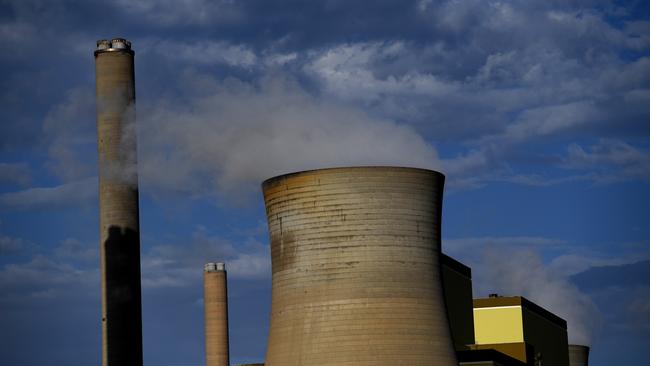Howard government divided on response to climate change
In 2001 the Howard government was negotiating its position for development of a national energy strategy, amid a policy duel between two cabinet ministers.

The Howard government was divided in 2001 over a co-ordinated national energy strategy, with a policy standoff between then environment minister Robert Hill and former industry and resources minister Nick Minchin who opposed greenhouse emissions mitigation measures.
But cabinet ultimately sided with Senator Hill – who argued for early greenhouse gas abatement action – demonstrating the Howard government’s willingness to prioritise serious views on the carbon emissions challenge.
The prior year – at the turn of the millennium – the Howard government agreed to look at ways industry could obtain credits for early greenhouse gas abatement as insurance against a possible emissions trading scheme, with a feasibility study into an ETS under way. In November 2000, federal cabinet had agreed in-principle to develop a system that would provide credit for early greenhouse gas abatement action in Australia, which had signed up to the Kyoto Protocol.
Cabinet records released by the National Archives of Australia reveal in March 2001 the Howard government was negotiating its position for development of a national energy strategy. The strategy sat within the Council of Australian Governments, the forum that brought federal and state governments together before it was replaced by national cabinet in March 2020.
Senator Nick Minchin – then industry and resources minister – told cabinet that Australia would continue to be “heavily dependent” on fossil fuels for the “foreseeable future”. He argued that this underlined the importance of stimulating “sustained improvements in energy efficiency.”
But comments made by Senator Hill’s Department of Environment and Heritage in response to Senator Minchin’s National Energy Strategy submission were scathing, arguing that his hasty treatment of climate change and other environment issues was not “proportionate with their significance for energy policy and for key stakeholders in this sector.” It also accused Senator Minchin of putting forward an approach at odds with a COAG decision from the previous year to encompass the environmental impacts of energy supply within the strategy.
Cabinet backed Senator Hill and asked Senator Minchin to work with his colleague to review the negotiation strategy, describing it as a “matter of urgency”.
The cabinet decision noted the national energy strategy should be aimed at lowering energy costs to consumers and promoting efficient and sustainable energy use, particularly of natural gas. The Howard government’s discussions on environment and climate change were the backdrop of faltering talks for the sixth session of the Conference of the Parties (COP6) scheduled in July in Bonn.
Following the Bush administration’s decision to oppose the Kyoto agreement and its climate change policy review which would accelerate the US’s emissions, Mr Howard wrote to then president George W Bush in April to outline Australia’s approach. Mr Howard’s letter argued that effective global action on climate change required commitment and leadership from all major emitters including the US.



To join the conversation, please log in. Don't have an account? Register
Join the conversation, you are commenting as Logout